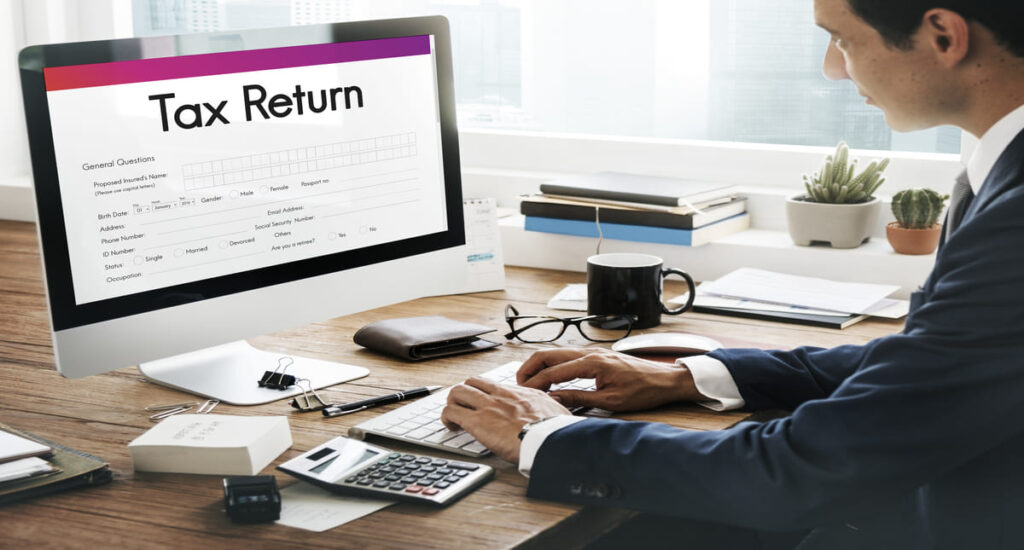Getting a new apartment is supposed to be an exciting achievement. A new location, a new start, a change of scenery. But for so many renters throughout the U.S., it’s not the rent rate, the location, or even the lease agreement that gets in the way—it’s the documents. Specifically, the proof of income. If you’ve ever been rejected for an apartment or spent weeks waiting to hear from a landlord, the odds are that the wait wasn’t due to your tenant history but rather the question of whether or not you could sufficiently demonstrate that you could afford rent. With a rental market that’s become more competitive and risk-adverse, landlords are no longer just looking at pay stubs. In fact, there are 11 documents your landlord might ask for as proof of income, sometimes even requiring several at once, which can make the process feel invasive, confusing, and overwhelming.
Why Is This a Growing Problem?
Let’s be frank—landlords have every incentive to desire financial verification on lease agreements. Based on the National Multifamily Housing Council, over 15% of renters in the U.S. were behind in paying rent at some point over the last 24 months. Eviction moratoriums, labor market volatility, and inflation all contributed to more stringent screening measures. A 2023 Zillow Consumer Housing Trends Report discovered that almost 60% of renters said they were requested to provide more than one kind of proof of income before they got approved. That’s not limited to high-cost cities and luxury apartments—this occurs all the way from Dallas to Detroit. For gig workers, freelancers, and even some full-time workers, paperwork required for approval at rental properties can be a huge obstacle, particularly when landlords do not explicitly state what they require and why.
Certain tenants enter with one or two pay stubs thinking they have done enough, only to be requested subsequently for a bank statement for apartment applications, tax return, or even a letter from an employer. And though it may seem landlords are being finicky, the reality is this: the more solid your documents, the lower the risk perceived. That could translate to quicker approvals, fewer rejections, and even superior lease terms.
Mastering the Document-Heavy Landscape Landlords Rely Upon Most
How can you handle all of these requests for papers without being overburdened? It’s difficult, particularly when landlords request paperwork you’ve never even considered before. The trick is to get a little bit ahead of it. You don’t need the “one right document” to prove yourself—there isn’t one. You’ve got plenty of options, and the best choice really depends on your personal situation. It’s not about paperwork alone—it’s about showing your landlord you can be trusted and dependable. Up next, we’ll walk through 11 proof-of-income documents landlords might ask for and how to choose wisely.
1. Recent Pay Stubs – The Most Common and Most Reputable Income Document
Pay stubs are usually the first thing that landlords request, particularly if you work for a company. They give a dated picture of your true income, deductions, and employment status. By presenting your last two stubs, you’re providing the landlord with an easy means of checking whether you have a stable income large enough to pay rent on a regular basis. This works especially well for salaried or hourly workers with a stable income stream.
2. Bank Statements – The Bigger Picture of Your Finances
Bank statements take you beyond merely your wages. They provide up-to-date cash flow—how much money is coming in, how much is being spent, and how you are keeping a good balance. This is helpful for those with fluctuating income, such as freelancers or part-time workers, and it provides another level of financial verification if other records are incomplete or illegible. A good bank statement for apartment screening tends to be used in conjunction with pay stubs or tax returns.
3. Tax Returns (Form 1040) – Legitimate Proof for Self-Employed or Freelancers

Federal tax returns are commonly asked for by landlords when they’re working with applicants that are self-employed, have a business, or have income from various sources. IRS Form 1040—particularly with accompanying Schedules such as C or SE—represents precisely what you’ve indicated to the government to be income. It provides a big-picture, year-over-year view of your earnings and helps reassure landlords that your income isn’t a fluke or short-term spike. This is a top-tier tax return as proof of income for long-term leases.
4. W-2 Forms – A Summary of Annual Employment Income
Your employer’s complete summary of your salary and tax withholdings from the prior tax year is your W-2. Landlords use this to back up current pay stubs or to evaluate job consistency and annual earning capacity. If you’ve recently changed jobs, a W-2 may be even more valuable because it proves last year’s full salary.
5. Employment Verification Letter – A Direct Statement from Your Employer
A notarized letter from your current employer, typically on company stationery, can authenticate everything from your title and hire date to your annual or monthly pay. It’s particularly helpful if your pay varies or if you’re in a probationary status at work. Some landlords consider this a type of formal verification that’s more difficult to fake than a paycheck stub. This kind of rental income letter from an employer gains landlord trust rapidly.
6. Social Security or Disability Income Statements – For Fixed or Retirement Income
If you’re receiving Social Security benefits or disability payments, your award letter or SSA income verification statement acts as your income proof. These are considered highly reliable because they come directly from a federal agency. For retirees, this is often the primary income source, and landlords generally treat it with the same credibility as a traditional paycheck.
7. Signed Offer Letter – When You’ve Been Hired But Haven’t Started Yet
If you have a new job and have not received a salary yet, a signed offer letter with your salary, job title, and anticipated start date will qualify as proof of income. Though some landlords may not accept it by itself, it becomes potent when added to savings or bank statements. It is most effective for relocation situations, where you’re applying prior to actually beginning the job.
8. Unemployment Benefits Statements – A Temporary but Valid Income Source
For job-hoppers who rent, state unemployment statements can be useful in documenting temporary income. They specify the amount you’re receiving and for how long. Though often less desirable for longer leases, they can work for short-term deals or if you can also show a strong savings cushion with them.
9. Profit & Loss Statements – The Self-Employed Applicant’s Financial Report Card
If you are self-employed or an independent contractor, a current profit and loss (P&L) statement provides landlords with a clear picture of your income and expenditures. This indicates whether your business is making a regular profit and enables the landlord to determine your capacity to pay rent even if you’re not receiving a standard salary. These are key self-employed tenant documents for establishing long-term earning capacity.
10. Alimony or Child Support Documentation – Court-Mandated, Reliable Payments
Periodic alimony or child support payments can be included in your income, but you’ll have to support this with court orders and evidence of regular deposits. Landlords prefer to see these payments being regular, predictable, and legally mandated—not ad-hoc arrangements. Bank statements documenting deposits corresponding to legal documentation are typically sufficient to substantiate this source.
11. Bank Letter of Funds – When You Have Savings Rather Than Income
Some tenants don’t make conventional income but do have the funds necessary to pay rent for months or even years. A bank letter that indicates your balance and average monthly balance proves you can pay your lease payments without showing monthly income. This is typically utilized by students, foreign renters, or someone who is in between jobs temporarily but has large savings.
Why It Matters: Case Study Snapshot
Consider this Chicago case in 2023:
A couple making more than $120,000 in combined income was rejected twice for apartments in the city center after providing pay stubs. The problem? One spouse had just gone out on his or her own as self-employed, and the landlord wasn’t sure about stability. With the addition of a two-year tax return and bank statements with regular deposits, they were approved within 48 hours. This actual situation reflects the same conclusions pointed out by Investopedia’s analysis of rental income demands, discussing how transparency in financial reports can expedite lease approvals. This speaks to how landlords vary in their understanding of “proof of income,” depending on the origin and paperwork. It is not only about the amount—it is about the transparency and income stability assurance the papers offer.
Take Action – How to Prepare and Move Forward
Being fully prepared is the best way to prevent delays, misunderstandings, or outright rejection. Don’t rely on just one form of proof unless your landlord explicitly says it’s enough. Whenever possible, provide two to three types of income documentation. This shows financial transparency and builds trust.
Before applying for your next rental, do this:
- Ask the landlord exactly what forms of income proof they accept
- Prepare recent versions of the 2–3 strongest documents you can offer
- Ensure all your documents are consistent (numbers should match)
- Keep digital and physical copies ready to submit immediately
Final Thought
In a competitive rental market, timeliness and concision can be the difference between getting your dream apartment and losing it to a quicker, better-prepared applicant. What documentation of income do landlords require? It’s your key to the lease, not paperwork. And once you understand what landlords actually want to see, you cease to guess and begin to act. Follow for more updates.
FAQs About Rental Income Documentation in the U.S.
1. What are the most commonly accepted documents by landlords to prove income in the United States?
The most preferred documents by landlords are usually recent pay stubs, tax returns, and bank statements. These tend to provide unambiguous, dated financial confirmation for rent applications and serve to verify steady income and financial stability.
2. Am I able to rent an apartment if I’m self-employed or a freelancer?
Yes, but you will need to supply substitute self-employed tenant documents like a profit & loss statement, 1099s, bank statements, and last year’s tax returns. These all contribute to the case of income stability and enable you to comply with rental approval paperwork requirements.
3. Is a bank statement sufficient in itself to rent an apartment?
Sometimes. Although a bank statement for apartment rentals may reflect cash flow and savings, most landlords require it along with other documents such as a pay stub or employer letter. It is more effective as a supporting proof rather than a solo.
4. How do landlords authenticate a rental income letter from my employer?
To make sure the letter is on official business stationery or to confirm its validity, landlords might give the employer a call. You should add your income, job title, and hire date in order to be a convincing income stability verification letter.
5. What if I don’t have any current income but sufficient savings?
You are still able to qualify by providing a recent bank statement or a bank letter of funds that illustrates your savings can pay for the duration of the lease. Others may insist on a higher deposit or a pre-paid rent guarantee for added security.
Hi, I’m Sikander Naveed — the mind behind this platform dedicated to online earning, technology, and smart business ideas. I created this site to share practical knowledge, latest trends, and real opportunities that can help you grow financially in the digital world. Whether you’re looking to start a side hustle, explore passive income methods, learn about useful tech tools, or understand how digital businesses work, you’re in the right place.
